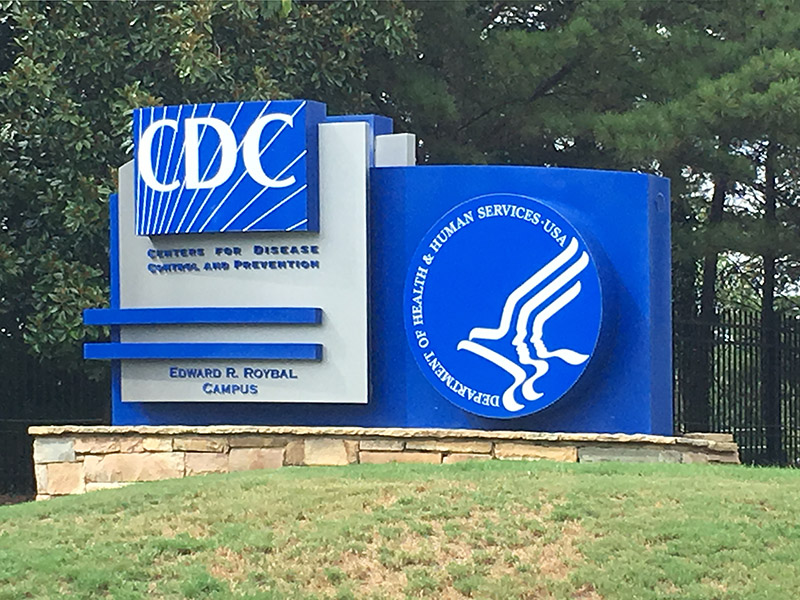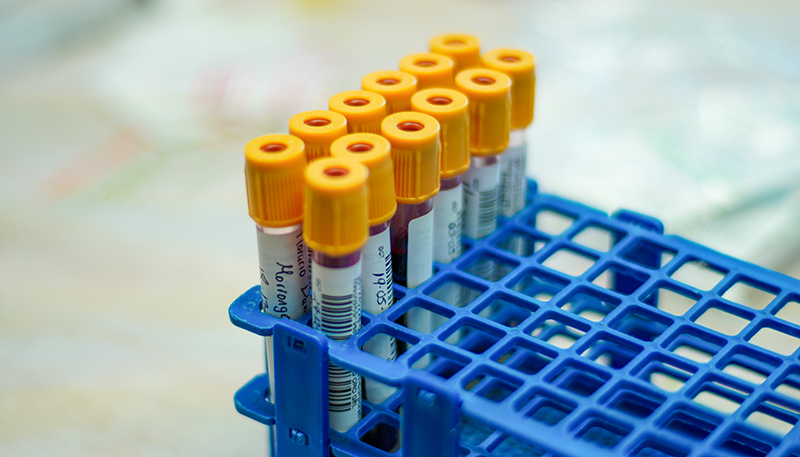Health Experts Warn of Monkeypox Infections Among Gay Men
Health authorities are warning men who have sex with men to be aware of unusual rashes or lesions, and seek treatment promptly.

Health authorities in Europe, the United States, and Australia are investigating a recent outbreak of monkeypox, a rare viral disease typically found in Africa.
Germany reported its first case of the virus on Friday, becoming the 11th country to confirm a case of infection. Other countries with confirmed cases are Australia, Belgium, Canada, France, Italy, Portugal, Spain, Sweden, the United Kingdom, and the United States — with more than 100 confirmed or suspected cases in total.
The breadth of the infections, and their seemingly rapid spread, have health experts looking into their root cause.
While monkeypox is not exclusively a disease affecting gay or bisexual individuals, nor is it considered a sexually transmitted infection, several of those infected self-identify as men who have sex with men. As a result, both the Centers for Disease Control and Prevention, and the United Kingdom’s Health Security Agency, have explicitly urged gay and bisexual men to be aware of any unusual rashes or lesions on their bodies, especially on their genitalia, and to contact a doctor immediately if they believe they may be infected.
The most recent case of monkeypox reported in the United States was diagnosed in Massachusetts in a U.S. resident who tested positive for the disease on May 18 after returning to the United States from Canada.
That case is suspected to be linked to a cluster of infections in Montreal, where health authorities have confirmed two cases of monkeypox and are investigating 17 other suspected cases, reports Boston-area ABC affiliate WCVB.
It remains unclear how the patients were exposed to monkeypox, but the majority of those infected in that cluster are men who have sex with men aged 30 to 55, according to the Montreal Gazette.
The CDC reported two separate cases of monkeypox infection in the United States in July 2021 and November 2021, one among a Maryland resident and the other among a Texas resident, both of whom had recently returned to the country after traveling to Nigeria.
Prior to that, the last major outbreak in the United States occurred in 2003, when 47 people in six states — Illinois, Indiana, Kansas, Missouri, Ohio, and Wisconsin — became ill due to contact with pet prairie dogs, which had been housed near imported mammals, including several rodents, from Ghana during transportation.
According to the CDC, all instances of infection in 2003 were from animal-to-human contact, such as touching the animal, receiving a bite or scratch that broke the skin, or touching the bedding of a sick animal. No instances of infection were attributed to person-to-person contact.
In Portugal, the country’s General Directorate for Health has confirmed five cases of monkeypox among young men, and is investigating 15 suspected cases, all located in or near the capital city of Lisbon. Authorities have not said whether the men had any history of travel to Africa.
In the United Kingdom, authorities have confirmed 20 cases of monkeypox infection. While one known case of infection, diagnosed on May 4, occurred among a person who traveled to the United Kingdom from Nigeria, the other cases appear to have no known links to that patient.
Several confirmed cases from this year’s outbreak have occurred among men who have sex with men, primarily from the London area, who have not recently traveled to Africa — suggesting they were likely infected by a heretofore unreported chain of transmission already occurring in Great Britain.
According to the CDC, the symptoms of monkeypox are similar to — but milder than — the symptoms of smallpox, including fever, headache, muscle aches, backache, chills, and exhaustion. Monkeypox also causes lymph nodes to swell.
Within one to three days, the patient will typically develop a rash, first beginning on the face and then spreading to other parts of the body. Lesions will progress through various stages before scabbing over and then falling off.
Monkeypox illness typically lasts two to four weeks, with incubation periods ranging from 5 to 21 days. There are two main variants: the Congo strain, which is more severe and has up to 10 percent mortality, and the West African strain, which has a mortality rate of about 1 percent. The cases currently being investigated appear to be linked to the West African strain.
Monkeypox is generally not considered a sexually transmitted infection, though it can be passed on by direct contact during sex, or through clothing, towels, or linens that have been in contact with an infected person. According to the CDC, transmission occurs primarily through respiratory droplets, which only travel a few feet, thus requiring prolonged face-to-face contact with an infected person.
Dr. Michael Skinner, who is on the faculty of medicine in the department of infectious disease at Imperial College London, noted in a statement that once monkeypox lesions have healed, the scabs can be shed as dust, which can then be inhaled.
To prevent transmission, experts advise isolating infected patients, avoiding contact with bedding that has been in contact with a either a sick animal or person, using personal protective equipment when caring for infected patients, and practicing good hygiene, including washing hands and using sanitizer, after treating infected animals or humans. Common household cleaners can kill the virus.
Currently, there are no specific treatments for monkeypox infection, but outbreaks can be controlled through the use of smallpox vaccine, cidofovir, ST-246, and vaccinia immune globulin. One vaccine, known as Immune or Imvanex, has been licensed in the United States to prevent monkeypox and smallpox. Because monkeypox is closely related to smallpox, past data from Africa suggests that smallpox vaccine is at least 85% effective in preventing monkeypox. Experts also believe vaccination after monkeypox exposure can help prevent the disease or lessen its severity, according to the CDC.
Support Metro Weekly’s Journalism
These are challenging times for news organizations. And yet it’s crucial we stay active and provide vital resources and information to both our local readers and the world. So won’t you please take a moment and consider supporting Metro Weekly with a membership? For as little as $5 a month, you can help ensure Metro Weekly magazine and MetroWeekly.com remain free, viable resources as we provide the best, most diverse, culturally-resonant LGBTQ coverage in both the D.C. region and around the world. Memberships come with exclusive perks and discounts, your own personal digital delivery of each week’s magazine (and an archive), access to our Member's Lounge when it launches this fall, and exclusive members-only items like Metro Weekly Membership Mugs and Tote Bags! Check out all our membership levels here and please join us today!




























You must be logged in to post a comment.